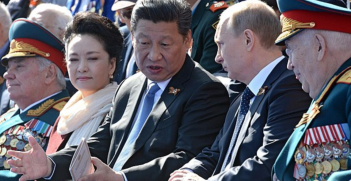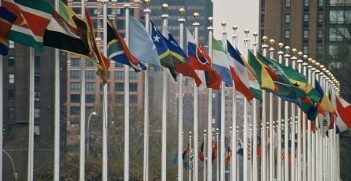Should Foreign Policy Play a Part in the Election Campaign?

Question: Should foreign policy play a part in the election campaign?
 The Hon Kim Beazley AC FAIIA The Hon Kim Beazley AC FAIIA |
When I entered parliament in 1980 I was on the tail of an era when national security policy was the salient debate for voters. At least the US alliance components of foreign policy were critical with the late Malcolm Fraser wielding it as a club on Labor. Irony there. It is important here not as a vote changer but assurance. Both sides will need to be convincing in the national security question. The ability to present a plausible picture of our international relationships will be part of that. Apart from on border protection neither side is attempting product differentiation here. Foreign policy won’t count overtly but that is not a product of irrelevance but mutual neutralisation. |
 Graeme Dobell FAIIA Graeme Dobell FAIIA |
The all-politics-is-local cliché becomes holy writ in an election. To turn the question around, consider what the lack of much foreign policy contest in the campaign tells us about areas of international consensus in our politics. What is the foreign policy bedrock that doesn’t need to be debated? It’s easy to draw up a quick list of agreed positions between the Coalition and Labor; that, in turn, says much about the policy givens or the base assumptions of a majority of the voters.My list includes the US alliance and an ever closer economic and diplomatic relationship with China – and neither side of our politics is interested in prodding potential tensions in those positions.Australia expects to be an important player in Southeast Asia, the superpower in the South Pacific and a player of note in what is now the construct du jour, the Indo-Pacific. For the voters, this is quick-tick stuff with a long history.The two sides have agreed on the Defence White Paper; the voters seem happy enough with huge buckets of money for subs and ships as industry policy as much as defence policy. So goodbye car industry, hello ship industry.The decimation of Australia’s international aid budget by the Coalition is another interesting example of quiet consensus. It’ll be fascinating to see what promises Labor makes on aid. If cutting aid doesn’t cost the Coalition votes, will lifting it win Labor any votes? |
 Erika Feller FAIIA Erika Feller FAIIA |
The answer can only be of course it should, even if, regrettably, it is unlikely to achieve much prominence. More and more events of major impact on sovereign nation states play out in global spaces – cyber space for one, or the high seas being but two. More and more developments happen which render boundaries or borders if not irrelevant, then at least very permeable. Look at mass movements of people into and across Europe, for example. According to renowned philosopher Martha Nussbaum: ” we live in a world in which the destinies of nations are closely intertwined with respect to goods and survival itself…. Any intelligent deliberation about ecology – as also food supply and population – requires global planning, global knowledge and recognition of a shared future”. The fate of countries and their populations is today so intertwined that governments have in my view no choice except to plan with this reality to the fore. I would hope very much that policies to be rolled out for public reflection and dissection over the coming weeks take this seriously into account. |












